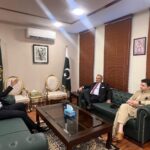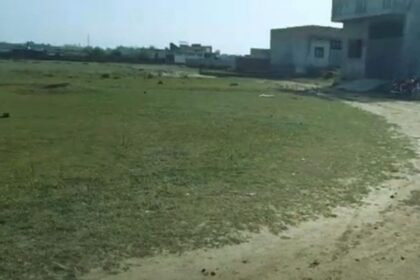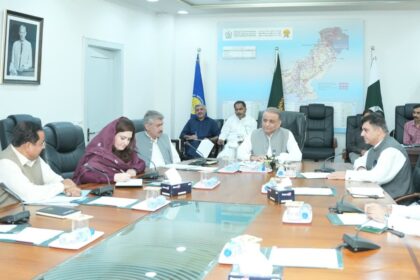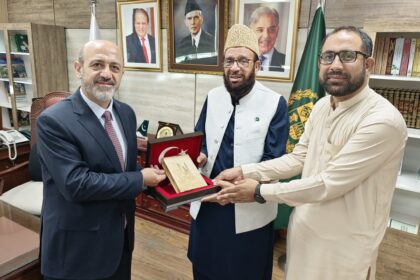Parliamentary Secretary for Federal Education and Professional Training, Ms. Farah Naz Akbar, paid an official visit to the Pakistan National Commission for UNESCO (PNCU), where she was briefed on the organization’s structure, achievements, and challenges. Her visit underscored Pakistan’s growing engagement with UNESCO and ICESCO, as well as the country’s dedication to advancing education, science, culture, and multilateral cooperation on both national and international levels.
During the visit, Ms. Akbar was welcomed by senior PNCU officials and received a comprehensive overview of the Commission’s mandate. Established under Article VII of the UNESCO Constitution, PNCU serves as Pakistan’s central coordinating body for both UNESCO and ICESCO initiatives. Its key responsibilities include aligning international priorities with Pakistan’s development goals, fostering partnerships across academia and civil society, managing international scholarships and fellowships, and acting as the primary liaison for multilateral educational and cultural cooperation.
Officials highlighted Pakistan’s active role on the world stage, including its ongoing membership in UNESCO’s Executive Board and its receipt of major awards, such as the UNESCO Prize for Girls’ and Women’s Education and the UNESCO International Literacy Prize in 2023. The establishment of eight UNESCO Chairs and two ICESCO Chairs across Pakistani institutions was presented as further evidence of the country’s leadership in academic and research excellence.
PNCU also detailed significant contributions in cultural and environmental preservation. These activities include the stewardship of six UNESCO World Heritage Sites and 26 additions to the Tentative List, as well as the designation of two new Biosphere Reserves: Chitral Garmchashma and Gallies. The recent inscription of Nowruz on UNESCO’s Intangible Cultural Heritage List was recognized as a milestone in Pakistan’s cultural diplomacy.
In terms of educational progress, PNCU reported on several initiatives, such as the establishment of 40 smart classrooms for female students in Azad Jammu & Kashmir. Additional highlights included the submission of seven projects to the UNESCO Participation Programme and targeted efforts to promote STEM education and Sustainable Development Goal 4 (SDG-4), which focuses on inclusive and quality education.
Financial commitments were also discussed, with Pakistan pledging PKR 125.161 million to UNESCO’s Paris headquarters and PKR 80 million to ICESCO in Morocco for the 2025–2026 period, underlining the country’s support for international education and cultural cooperation.
Despite these successes, PNCU leadership raised several ongoing challenges. The Commission is currently hampered by vacant administrative positions, limited capacity-building opportunities, an insufficient operational budget, and the need for stronger institutional coordination following Pakistan’s 18th Constitutional Amendment.
Ms. Akbar concluded her visit by commending the PNCU’s achievements and reaffirmed the Ministry’s commitment to enhancing Pakistan’s international profile in education, science, and culture. She expressed particular interest in supporting initiatives to strengthen capacity and resolve institutional bottlenecks, enabling the PNCU to fulfill its expanding array of national and international responsibilities more effectively.











